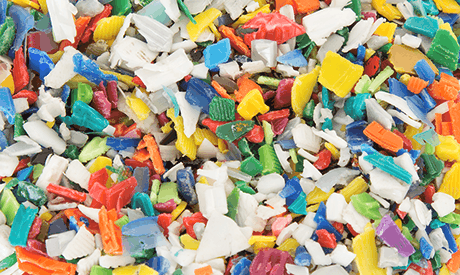Interesting Facts About Recycling Plastic

Sustainability has become the focus of many individuals, industries, and businesses as the need to become better custodians of resources has emerged. Not only is sustainable use the ethical thing to do to protect raw materials and reuse resources that are already available, but it also provides financial benefits to communities who recycle as well. While plastic recycling in Tennessee is truly a team effort, it takes individuals and businesses working together to make the desired impact and reduce waste.
Plastic has become so commonplace in everyday life that most people don’t think about where that critical mass of plastic waste ends up. The statistics surrounding the amount of plastic that makes its way into landfills and waterways are startling. What magnifies the problem further is that once most plastics are discarded, it could take centuries for them to break down. Plastic recycling technology has adapted to the heightened need, and recycling is more affordable and more widespread than ever before. Also, it’s now easy to find products made of recycled plastic, which provides concrete evidence of the sustainability of the material as a resource. Keep reading to learn a few unique facts that you should consider when it comes to plastic recycling.
Impact on the Environment
It’s obvious that recycling plastic can have an impact on the environment, as the volume of plastic waste generated by society is responsible for clogging acres of landfill space. A great deal of plastic also ends up meandering through tributaries to larger waterways before emptying into the oceans. For example, the North Pacific Gyre is a confluence of ocean currents, and it’s the home of a 1.7 million square kilometers sized patch of floating plastic garbage. That plastic becomes more than just an unsightly blemish, as many types of clear plastic pose a danger to sea life that mistakenly feeds on it or becomes entangled in it. However, preventing the disposal of plastic waste isn’t the only environmental upside of recycling. It also saves energy, as reusing existing plastic requires less than 20 percent of the energy expenditure required to make new plastic.
Volume of Recycled Plastic
According to the Institute of Scrap Recycling Industries, or ISRI, 5 million tons of plastic were recycled in 2016, the most recent year for which statistics are available. One of the primary targets of recycling efforts is a kind of plastic known as PET, or polyethylene. This type of plastic is commonly used in manufacturing bottles and jars and is the most recycled kind of plastic. PET plastic has a nearly 30 percent recycling rate, which makes it the most recycled plastic in the US.
Ways Recycled Plastic Is Used
Though many types of recyclable plastic may begin its life as food storage containers, once recycled it’s usually used for other consumer goods. The quality of many plastics is degraded through recycling, which means it’s not likely to be used again for food-grade applications. However, it’s perfect for use in consumer items such as furniture, clothing, insulation, and other common everyday items.
Economic Impact of Recycling
Recycling isn’t just about reusing resources and preventing plastic pollution. It has also emerged as a trending industry that employs many and buoys the local economies of hundreds of communities. It’s estimated that in the US alone, recycling employs more than 750,000 people with a national economic impact of over $36 billion in wages and nearly $7 billion in tax revenues. Over $5 billion in plastic scrap was exported from the US in 2016, which marks a trend that continues to improve.
If you want to support the reuse of critical resources, conserve energy, and feed an economic engine that is continuing to build momentum, then you should recycle plastic in Tennessee. It benefits the environment and provides jobs to communities in need while helping to better manage the growing challenge of global plastic disposal. To learn more interesting facts about plastic recycling, contact Seraphim Plastics at (888) 423-1927.